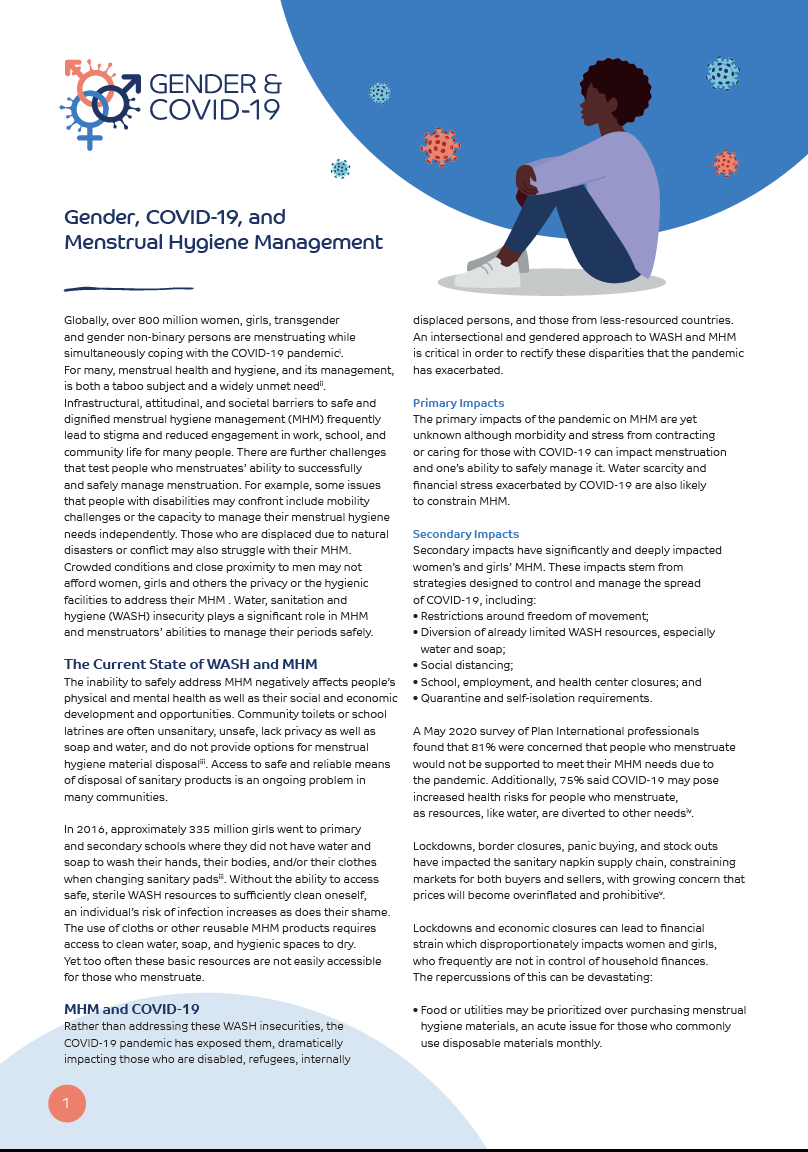Globally, over 800 million women, girls, transgender and gender non-binary persons are menstruating while
simultaneously coping with the COVID-19 pandemic. For many, menstrual health and hygiene, and its management, is both a taboo subject and a widely unmet need. Infrastructural, attitudinal, and societal barriers to safe and dignified menstrual hygiene management (MHM) frequently lead to stigma and reduced engagement in work, school, and community life for many people. There are further challenges that test people who menstruates’ ability to successfully and safely manage menstruation. For example, some issues that people with disabilities may confront include mobility challenges or the capacity to manage their menstrual hygiene needs independently. Those who are displaced due to natural disasters or conflict may also struggle with their MHM. Crowded conditions and close proximity to men may not afford women, girls and others the privacy or the hygienic facilities to address their MHM . Water, sanitation and hygiene (WASH) insecurity plays a significant role in MHM and menstruators’ abilities to manage their periods safely.
Sharma, B.B., Logie, C., Fisher Ingraham, R., and Joe, K. (2021). Gender, COVID-19, and Menstrual Hygiene Management. The Gender and COVID-19 Working Group.






